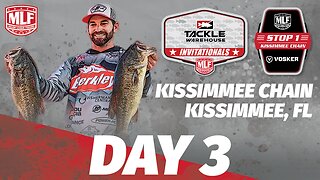Premium Only Content

The Cost of Neglecting the Consignee: ISF Penalties Uncovered
US Customs Clearing | 213-270-1930 | info@uscustomsclearing.com | https://uscustomsclearing.com/
In today's video, we discussed the importance of reporting the consignee's name and address in the Importer Security Filing (ISF). The ISF, or 10+2 rule, is a requirement enforced by US Customs and Border Protection to enhance cargo security and facilitate risk assessment. Failure to include accurate consignee information in the ISF can result in penalties and delays in the customs clearance process.
Penalties for ISF violations can vary and may include monetary fines. CBP has the authority to issue liquidated damages, which are pre-determined amounts established in advance. The specific penalties related to not reporting the consignee's name and address can be based on the number of affected shipments or the value of the goods involved.
To avoid penalties and delays, it is crucial for importers to work closely with their customs brokers or freight forwarders. Customs brokers specialize in navigating complex customs regulations and requirements and can ensure accurate and timely filing of the ISF.
Providing complete and accurate information when filing the ISF, including the consignee's name and address, is key to minimizing the risk of penalties and ensuring a smooth customs clearance process.
In conclusion, compliance with the requirement to report the consignee's name and address in the ISF is essential for importers. Failure to comply can result in penalties and delays, impacting the importer's business. Partnering with a customs broker or freight forwarder can help ensure accurate filing of the ISF and avoid any potential violations. Stay tuned for more informative videos on customs brokerage, customs bonds, and international trade.
#usimportbond #isfcustomsbroker #uscustomsclearing #isfentry
Video Disclaimer Here: For learning purposes only, We claim no affiliation with any US government agency.
-
 12:03
12:03
Space Ice
13 hours agoSteven Seagal's China Salesman - Mike Tyson Knocks Him Out - Worst Movie Ever
31.4K15 -
 11:37
11:37
Degenerate Jay
12 hours ago $4.91 earnedJames Bond Needs Quality Over Quantity From Amazon
51.4K3 -
 15:23
15:23
Misha Petrov
13 hours agoTrad Wives & Girl Bosses Go to WAR!
46.1K42 -
 2:03:11
2:03:11
TheDozenPodcast
11 hours agoFootball villain fighting the state: Joey Barton
39K1 -
 13:18:50
13:18:50
Scottish Viking Gaming
14 hours ago💚Rumble :|: Sunday Funday :|: Smash the Blerps and Vape the Terpes
81.1K8 -
 1:45:00
1:45:00
RG_GerkClan
16 hours ago🔴LIVE Sunday Special - It's Time for World Domination - Civilization VII - Gerk Clan
78.9K27 -
 LIVE
LIVE
Major League Fishing
4 days agoLIVE Tackle Warehouse Invitationals, Stop 1, Day 3
146 watching -
 23:34
23:34
marcushouse
16 hours ago $15.83 earnedBREAKING: Starship Launch IMMINENT – But What’s This SURPRISE Flight 9 Plan?! 🚀🔥
118K16 -
 8:43
8:43
Film Threat
1 day agoTHE MONKEY | Film Threat Reviews
105K3 -
 15:55
15:55
TSPLY
1 day agoThe Media Is Very Afraid Of FBI Director Kash Patel
87.4K65